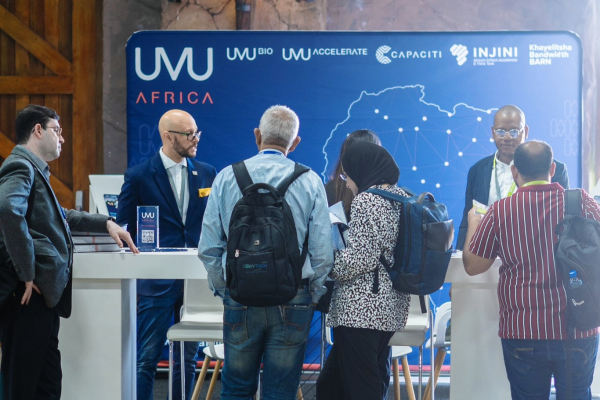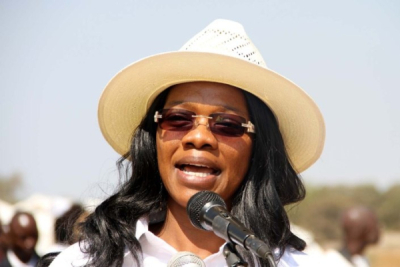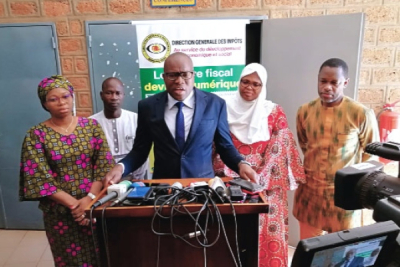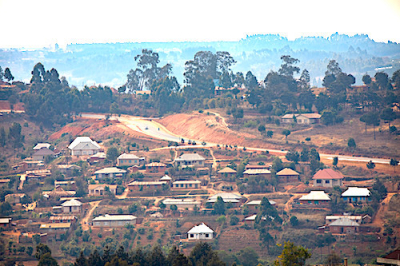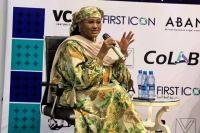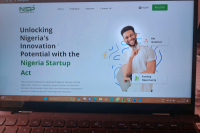UVU Africa stands as a steadfast champion of innovation and technological advancement across the African continent. Through its multifaceted programs and initiatives, the organization plays a pivotal role in shaping the continent's technological landscape.
UVU Africa, formerly known as Cape Innovation and Technology Initiative (CiTi), is a non-profit organization committed to shaping the future societies of Africa. Established in 1999 by Joshin Raghubar, with a current presence in South Africa and Rwanda, the organization officially changed its name in January 2023.
It collaborates with dynamic and ambitious talent, partnering with visionary organizations such as Liquid Intelligent Technologies, Google, Verifone, IBM, Amazon Web Services, and Microsoft. Together, they work towards designing and constructing inclusive, “future-fit” societies through innovation and technology.
Under the leadership of CEO Ian Merrington, UVU Africa is expanding its influence and footprint across the continent. The organization focuses on fostering inclusive growth in the digital economy through activities like business incubation, acceleration, skills development, and the establishment of specialized innovation clusters.
"UVU Africa will continue to design and build future-fit-inclusive societies through innovation and technology. We drive inclusive growth of the digital economy through business incubation, skills development, and key projects that catalyze open innovation and collaboration. We build future societies, today, across Africa," says Joshin Raghubar.
The organization implements various programs to achieve its objectives. The CapaCiTi Tech Career Accelerator, for instance, equips young South Africans with the resources needed to become fully-fledged digital citizens.
Through UVU Accelerate, the organization supports and trains entrepreneurs, offering a mentoring program, access to relevant networks, and funding opportunities. In 2019, UVU Africa introduced UVU Bio, a specialized biotech accelerator providing a platform for African entrepreneurs in the realms of science, business, and investment. Injini, specializing in education technologies in Africa, is a member of the UVU Africa group.
In addition, UVU Africa provides a range of facilities, including shared workspaces, meeting rooms, boardrooms, and event halls. It has an undeniable impact on Africa. The organization has empowered over 2,500 women through technological training for their businesses. Annually, it trains 1,000 unemployed young people in technology and essential skills and has supported 55 African edtech startups. Furthermore, UVU Africa has incubated over 60 companies in the bioeconomy. The organization's flourishing ecosystem comprises over 5,000 entrepreneurs.
Melchior Koba
WayUp Sports, an Egyptian online sports equipment e-commerce platform, announced on Wednesday, November 22, the successful completion of a funding round of an undisclosed amount. The round was led by Beltone Venture Capital and Index Sports Fund. The startup, founded in 2021, will use the funds to accelerate its brand rollout, fuel its regional expansion, and improve the user experience on its web and mobile platforms.
To expedite its digital transformation journey, Kenya is bolstering its partnerships in the technology sector. Earlier this week, the authorities partnered with American giant Microsoft to improve the delivery of public services.
Stanley Kamanguya, Director General of the Kenya ICT Authority (ICTA), and Phyllis Migwi, Country Manager of Microsoft East Africa Company, signed a memorandum of understanding in the ICT sector on Tuesday, November 21 in Nairobi, Kenya. The aim is to reinforce the digital transformation underway in the country and integrate Microsoft cloud services to improve public service delivery with the adoption of the cloud-first strategy.
By February 2024, the Redmond-based firm will have to put in place a comprehensive framework for this purpose. The move to the cloud should enable Kenya to outsource the security and data protection of all its institutions to the American giant for the next three years, per the terms of the protocol.
"I would like to thank Microsoft for this engagement which has come at the right time. We believe that towards the end of this partnership, we shall enhance our cybersecurity awareness, enhance our digital skills, and develop key technology areas for a vibrant digital sector," said Stanley Kamanguya.
A few months ago, the Kenyan public services portal, eCitizen, suffered a cyberattack claimed by pro-Russian hacktivist group Anonymous Sudan, forcing authorities to take measures to ensure continuity of services like visa, passport, identity card, and driving license issuance.
Yet, Kenya is one of the African countries that performs best when it comes to cybersecurity. It ranks 5th on the continent and, is one of the few with a national cybersecurity strategy. In its report "Cybersecurity in Africa -Call to action" published in June 2023, consulting firm Kearney explains that the continent's ability to resist, adapt, and recover from cyberattacks is low. Sub-Saharan African countries do not invest enough in cybersecurity. The region’s average cybersecurity investment is around 0.03% of GDP while the average benchmark is 0.25%.
Kenya’s digital ambitions place the country among the top African targets for hackers. Therefore, it is allowing itself up to three years –the duration of the agreement with Microsoft– to get up to speed.
"As a leader in the tech space in Kenya, Microsoft is very glad to sign this MoU and for us, we are looking forward to seeing how we shall bring the full power of Microsoft services and products to the government for mutual benefit," explained Phyllis Migwi.
Adoni Conrad Quenum
Recognizing the potential of electronic health records to enhance medical care, several African nations are making strides toward their widespread implementation.
On Tuesday, November 21, Zambia's Minister of Health, Sylvia Masebo (photo), launched SmartCare Pro, a digital electronic health record (EHR) management system.
The new system, inaugurated in the Chongwe district, aims to transform healthcare delivery across the country by improving access to care, health outcomes, and quality of care.
According to the Minister, the system will not only collect data but also guide healthcare workers in managing patients. "It uses information provided by our health experts and consultants to assist our health workers. It’s a game-changer in how we manage the healthcare of our citizens. This system is finally going to ensure that all the facilities that are from the smallest up to the biggest hospitals will be digitized," she said.
According to Sylvia Masebo, the implementation of the new system is part of the government's commitment to the convergence of technology and healthcare. It defines the shared vision of creating a future where technology plays a key role in promoting healthier communities.
SmartCare Pro will improve the overall efficiency of healthcare. It will also enable doctors to access medical records directly, avoiding duplicate tests and procedures for each patient.
SmartCare Pro is the enhanced version of SmartCare, an HIV-specific data collection tool launched over 15 years ago in the country. It has also made a significant contribution to clinical decision support and improved healthcare service delivery.
Samira Njoya
Burkina Faso's Minister of the Economy Aboubakar Nacanabo (photo center), officially unveiled e-TIMBRE, the country’s digital stamp platform, in Ouagadougou last Monday.
The new platform aims to end tax stamp shortages, optimize production costs, and deliver a seamless user experience anytime, anywhere.
To improve the efficiency of public services, the Democratic Republic of Congo plans to digitize the whole sector and end physical documents. However, its digitization efforts are hampered by a shortage of skilled employees.
Africa Digital Academy (ADA), a subsidiary of Africa Development Solutions Group dedicated to the creation and management of digital training programs, and DRC’s digital development agency ADN signed a memorandum of understanding on Tuesday, November 21, on the sidelines of the Africa Digital Expo held in Kinshasa, Democratic Republic of Congo. Under the agreement, ADA will train 100,000 Congolese civil servants in 2024 and 2025.
"The collaboration between ADA and ADN, two leading entities in the digital field, is a giant step forward in the effort to modernize the Congolese public administration. We thank ADA for their strategic support and look forward to this collaboration," said ADN coordinator Dominique Migisha (photo, left).
According to ADN, the training program will focus on the fundamentals of cybersecurity, artificial intelligence, digital transformation, and business solutions. The aim is to support and accelerate the DRC's digital transformation, with an emphasis on the acquisition of key skills and the implementation of technological solutions tailored to the country's specific needs.
The new partnership is part of the actions undertaken by the government and its partners to accelerate digitization in the country and equip the country's citizens with the digital skills needed to ensure said digitization and reduce the digital divide.
It is one of the numerous programs the ADA is involved in across Africa. Since October 16, the academy is training 1,000 young Ivorians in digital professions, including cybersecurity.
At the end of the collaboration with ADN, Congolese civil servants will be better equipped to use the public services being digitized in the country.
Samira Njoya
Rapelang Rabana, a serial entrepreneur, revolutionizes the training and education landscape with innovative digital solutions. Her remarkable entrepreneurial journey has been marked by numerous accolades and distinctions.
A pioneer in the fields of education and technology, Rapelang Rabana is a South African computer scientist, entrepreneur, and lecturer. Born in Gaborone, Botswana, in 1982, she materialized her commitment to empowering others by creating Rekindle Learning, a company offering digital learning solutions for businesses and educational institutions.
Rabana pursued higher education at the University of Cape Town, where she earned a Bachelor's degree in Computer Science in 2005 and a Master's degree in Real Estate Studies in 2010.
In 2014, she founded Rekindle Learning, which harnesses the power of technology to transform learning experiences for individuals and organizations. Driven by the belief that personalized, interactive, and adaptive digital solutions can enhance learning outcomes, Rekindle Learning uses microlearning techniques to help professionals acquire the skills they need in the ever-evolving world of work.
Rapelang Rabana is also Co-CEO of Imagine Worldwide, a technology solution that empowers children with the literacy and numeracy skills they need to reach their full potential. She has been a venture partner at GrindstoneXL since 2021 and a non-executive partner at Nisala Capital since 2016. She also co-founded, in 2021, FFWD Innovation, an organization that provides coaching, training, and mentorship to teams, enabling them to build and develop innovations faster using cutting-edge business management methodologies and techniques.
In 2005, she co-founded Yeigo Communications, South Africa's first free VoIP mobile services provider whose majority stake was acquired by Swiss group Telfree in 2008. After the acquisition, Ms. Rabana was appointed head of the VoIP company’s R&D department. She remained in this position until 2012. In November 2017, she was appointed Chief Digital Officer of BCX, where she worked until 2018.
Several awards have celebrated her endeavors. In 2012, she was featured on Oprah Magazine's O Power List. The following year, she made it to Forbes' 30 Entrepreneurs Under 30 list for Africa and was subsequently (in 2014) named Entrepreneur for the World by the World Entrepreneurship Forum. In 2017, she was selected as a Young Global Leader by the World Economic Forum.
Melchior Koba
Tech startups globally serve as economic pillars. Despite their crucial role, funding obstacles hinder their growth, particularly in Africa. To address this, companies are increasingly seeking funds to propel startup progress, recognizing their pivotal contribution to national development.
Investment firm Aduna Capital announced the launch of a $20 million fund dedicated to revolutionizing the African tech startup ecosystem, on November 20.
According to the press release announcing the fund, it will mainly target the underserved market of Northern Nigeria, which is home to over 128 million people (according to a 2021 report by the National Bureau of Statistics). Citing a 2023 report from the Northern Founders Community (NFC), the release indicates: “Start-ups in sectors like edtech and agritech in this region [ed. note: Northern Nigeria] are already making over $1.2 million in bootstrapped revenue.” Therefore, Aduna Capital believes that “With proper funding and support, these start-ups have the potential to scale significantly, both within the continent and globally.”
Founded by entrepreneurs Surayyah Ahmad Sani (the co-founder of Ethco, a startup helping ethnic stores go digital, and the chairperson of the Northern Founders Community (NFC) and Sanusi Ismaila (founder of Colab, the largest innovation hub in Kaduna), Aduna Capital stands as both an investment firm and an ecosystem fostering innovation.
Sanusi Ismaila notes Aduna Capital's strategy extends beyond Northern Nigeria, with 25% of the fund for the rest of Nigeria and 25% for start-ups across Africa, fostering a diverse portfolio. Committed to diversity, Aduna Capital allocates 50% of investments to female-led start-ups.
The Capital's strategy targets super early and pre-seed stage investments, aiming for “a 5–10x return on investment, balancing profitable returns for its investors with meaningful investments,” he revealed.
Aduna Capital's $20 million fund signals a transformative step for African tech start-ups. With a strategic focus on underserved regions, diversity, and pan-African growth, the firm aims to make a lasting impact on the continent's entrepreneurial landscape.
Hikmatu Bilali
Nigeria, like several African countries, has promulgated its startup act to support the entrepreneurship ecosystem. However, the act is yet to be fully implemented.
On Tuesday, November 21, Bosun Tijani, Nigeria's Minister of Communications, Innovation and Digital Economy, announced the launch of the Start-up Support and Engagement Portal. It will help identify and aggregate Nigerian startups, venture capital firms, hubs, and innovation centers to facilitate the engagement and support of the various players in the ecosystem.
"The launch of the portal will allow us to initiate the process of setting up the startup consultative forums to select representatives to the National Council for Digital Innovation and Entrepreneurship to facilitate discourse and consensus among Nigerian ecosystem players," he said.
The establishment of the Startup Support and Engagement Portal builds upon the enactment of the Nigeria Startup Act in October 2022. This landmark legislation, championed by local tech ecosystem leaders and government authorities, has established a comprehensive framework for nurturing and supporting startups across the country. In April 2023, President Muhammadu Buhari further propelled the advancement of the tech sector by inaugurating the Nigerian National Council for Digital Innovation and Entrepreneurship (NCDIE), tasked with overseeing the implementation of the Startup Act.
To qualify for the "Startup" label, which unlocks a range of benefits under the Startup Act, startups must be in operation for less than 10 years and register on the Startup Support and Engagement Portal. These benefits include tax breaks, capacity-building programs, and access to grants, loans, and investment funds.
Adoni Conrad Quenum
Moroccan e-commerce platform Chari has completed an undisclosed round of financing with UM6P Ventures, the investment fund of Université Mohammed VI Polytechnique (UM6P). The startup's co-founder Ismael Belkhayat, who unveiled the news last week, said the newly secured funds will empower Chari to position itself as a frontrunner in business-to-business e-commerce, particularly focusing on integrated financing solutions.
More...
Raxio Group entered the African data center market in 2019. Since then, the company has been stepping up investments to expand its geographical footprint on the continent.
On Tuesday, November 21, neutral data center builder and operator Raxio Group announced the official launch of a state-of-the-art data center in Ethiopia. The tier 3 infrastructure is located in the economic heart of Ethiopia, the country's capital, Addis Ababa.
According to Raxio Group, the new data center will accommodate up to 800 racks. In addition, it will offer "up to 3MW of IT power, providing a robust, fully-redundant environment for housing mission-critical IT infrastructure with 24/7 availability."
With the launch of the new data center, Raxio Group continues its African expansion strategy launched in 2019. This strategic move follows closely on the heels of the group's recent announcement securing $46 million in equity to fuel the expansion of its data center network across Africa. Recognizing the continent's surging demand for digital infrastructure, Raxio Group is committed to establishing ten to twelve data centers throughout Africa, providing businesses and individuals with the essential digital backbone they need to thrive.
Upon its completion, the data center is poised to play a pivotal role in expanding the ICT infrastructure network, ensuring that the transformative benefits of technology reach all corners of the country. This expansion will facilitate access to essential educational, social, and business resources, empowering individuals and communities to harness the power of technology for their advancement.
"We anticipate that this facility will be a catalyst for increased economic development in Ethiopia, supporting local businesses and government agencies, as well as attracting regional and international service and content providers into Ethiopia," said Bewket Taffere, General Manager of Raxio Data Centre in Ethiopia.
Samira Njoya
Nurturing local entrepreneurship, Le Boukarou fosters innovation through its incubation efforts and groundbreaking initiatives. Its success in supporting entrepreneurs across Africa serves as a powerful testament to its unwavering commitment to fostering a thriving entrepreneurial ecosystem.
Founded in 2016 and led by Jean-Patrick Ketcha, a member of Afric'Innov's Board of Directors and the Strategic Orientation Board of the Francophone Employability Center, Le Boukarou stands as a beacon of entrepreneurial empowerment. Guided by a mission to propel enterprising youth onto the forefront of the Cameroonian and African economy, the incubator diligently nurtures budding entrepreneurs through a comprehensive array of support services.
Le Boukarou's commitment to fostering entrepreneurial success manifests in a diverse range of activities and programs meticulously tailored to equip entrepreneurs with the necessary tools to transform their ideas into businesses. From coaching and mentoring to business development guidance, startup support, training, and networking opportunities, the incubator provides a holistic approach to nurturing entrepreneurial growth.
Acknowledging the importance of fostering a supportive environment for entrepreneurial ventures, Le Boukarou has established a well-equipped and user-friendly coworking space, fostering collaboration and innovation among its vibrant community of entrepreneurs.
"Our operational approach centers on working closely with young people, guiding them from the initial structuring of their ideas to the operationalization of their projects, culminating in the development of their businesses. We recognize that businesses cannot thrive in isolation. Therefore, our ambition is to forge lasting and effective partnerships with all relevant stakeholders, including state institutions, media outlets, scientific and technical units, investors, and international organizations," the incubator indicates on its website.
Le Boukarou's support extends to a wide spectrum of fields, encompassing agriculture and food security, cultural and creative industries, the circular economy, the environment, water and energy, mobility, sustainable cities, and education, among others.
The incubator's initiatives include the renowned Bouka Club program, designed to enhance youth employability through targeted training and entrepreneurial skills development. Additionally, Le Boukarou offers the Bouka Seeds program, providing financial support to young Cameroonian value creators. One of the entrepreneurs it supported is Arthur Zang, the engineer behind the groundbreaking connected electrocardiogram called CardioPad.
Since its inception, Le Boukarou has supported over 40 startups, positively impacting the lives of more than 42,000 individuals. With five impactful programs reaching over 1,000 participants, the incubator's presence extends across Bamenda, Douala, Maroua, and Garoua. Its endeavors are supported by a network of partners, including Total Energies, the French Institute, UNDP, the French Embassy in Cameroon, and the Agence Universitaire de la Francophonie (AUF).
Melchior Koba
Trained as a lawyer, she swiftly shifted her focus to financial technology. As the founder and CEO of the CaPay application, she has garnered recognition for her efforts in bolstering employees’ financial inclusion.
Ariane Akeret (photo) is a Gabonese entrepreneur who has revolutionized financial inclusion through her innovative mobile payment platform, CaPay. Through that platform, she has transformed the way underbanked employers and pensioners receive their salaries and social benefits.
With a master's degree in law from Omar Bongo University in 2017, she discovered mobile money during her travels in West Africa. Concerned with strengthening the financial inclusion of wage earners, she drew inspiration from the transformative power of mobile money to create a solution that would bridge the financial divide. In 2019, Akeret's vision materialized into CaPay, a platform designed to streamline the disbursement of salaries, pensions, and scholarships through mobile money technology.
"I created CaPay to address the challenges faced by people in remote areas who have to travel long distances to collect their pensions," the entrepreneur said in 2022.
CaPay's mission is to simplify and secure payroll processes, making them accessible and inclusive for all. Its user-friendly interface caters to a wide range of organizations, including associations, social benefit funds, cooperatives, companies, trade unions, public administrations, and more.
Eliminating the need for traditional bank accounts, the platform empowers employees and pensioners to receive their payments directly into their mobile money accounts.
Prior to embarking on her fintech journey, Akeret gained valuable experience in the legal field. In 2016, she served as an executive assistant in the legal and litigation department of the State Judicial Agency in Gabon. Subsequently, she worked as a legal assistant at the National Agency for Town Planning, Topographic Works and Cadastre (ANUTTC) in 2018.
Akeret's unwavering commitment to financial inclusion has garnered her numerous accolades. In 2022, she received the prestigious Margaret Prize in Paris in the "Entrepreneur Africa" category. Her dedication to innovation was further recognized in November 2023 when she and four other entrepreneurs won the national competition for invention and technological innovation.
Melchior Koba
As a software developer, he uses technology to solve local problems and create value for his community. With his company Twende Mobility, he is helping improve the transport conditions of millions of people across Africa.
Kiptoo Magutt (photo) is the co-founder and CEO of Twende Mobility, a mobility platform that seamlessly connects customers with transport operators, revolutionizing travel and logistics management in Africa. His platform's unified, transparent, and cost-effective approach empowers users to effortlessly navigate their transportation needs.
The tech entrepreneur studied at Princeton University, USA, where he earned his Bachelor's degree in Electrical Engineering in 2012. After years of working in structures in the United States, he decided to return to Kenya in 2017 to launch his own company, Twende Mobility which is named after its flagship solution.
The said solution empowers mobility and logistics operators to embrace the digital revolution. The platform seamlessly streamlines operations, encompassing booking management, dispatch, payments, customer relationship management, and more. It aims to make mobility more accessible, safer, and sustainable across Africa.
Before embarking on the Twende Mobility adventure, in 2011, Magutt co-founded M-Profesa, an e-learning platform that fosters the exchange of learning materials between teachers and students. His professional career began, in 2010, at Princeton University’s EDGE Lab, where he was a software developer and associate engineer. In 2011, he worked at the Applied Science and Technology Research Institute (ASTRI) in Hong Kong as an engineer-in-training. Between 2012 and 2014, he honed his skills in the United States, serving as a software developer for companies such as SevOne and Spreecast, an interactive video platform. From 2014 until his return to Kenya, Magutt was an Android developer for the independent Arab news channel Al Jazeera Media Network.
Melchior Koba


